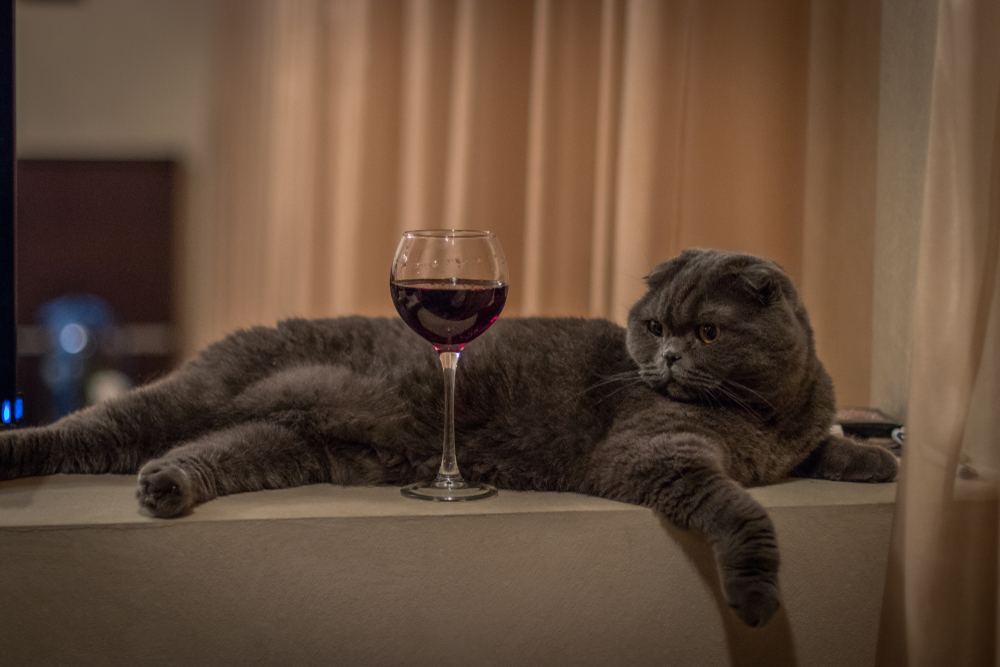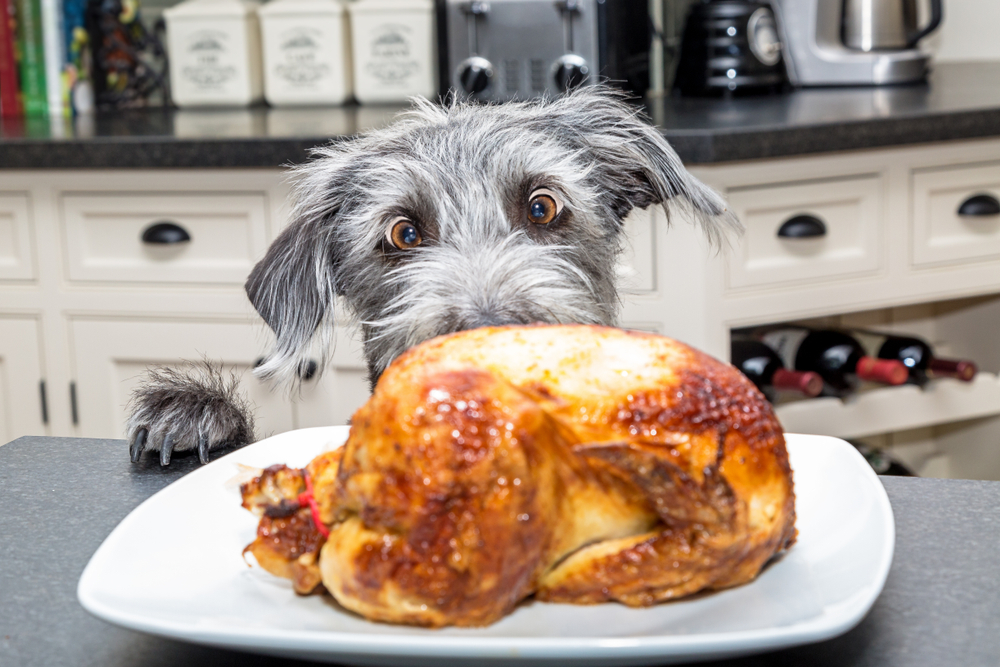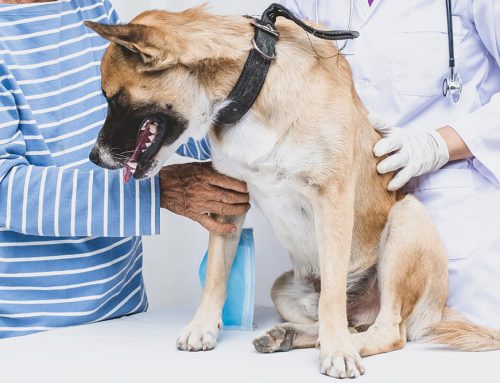Thanksgiving is a time for families to come together and celebrate life’s joys and blessings. While this festive season is full of meaning for many families, your pet is less sentimental and would like nothing more than to snag that delicious-smelling turkey and have their own special feast. While we can’t blame them for wanting to partake in the Thanksgiving meal, if your pet overindulges during this food-centric holiday, they create a recipe for disaster that may include a trip to the emergency veterinary hospital. Our Adamson Veterinary Services team shares three foods often included on the Thanksgiving menu that are toxic or harmful to pets.
#1: Thanksgiving turkey is no treat for pets
While turkey can be a healthy treat for your pet, the bird you prepare for your Thanksgiving feast poses numerous hazards. Consider the dangers your Thanksgiving turkey poses to your four-legged friend’s health:
- Seasonings and spices — Thanksgiving turkeys are usually seasoned with various spices and herbs such as garlic, onion, and sage. These ingredients can be harmful to pets. Garlic and onion can damage red blood cells, causing anemia, while certain herbs contain oils and compounds that are toxic to pets.
- Fatty skin and gravy — Many cooks slather their Thanksgiving turkey’s skin with butter or oil. Skin is fatty, and along with gravy made from turkey drippings, it can be too rich for pets, leading to gastrointestinal (GI) issues such as diarrhea or pancreatitis, which is a more severe condition.
- Turkey bones — Cooked bones, including turkey bones, are prone to splintering. If your pet ingests a turkey bone, it can pose a serious choking hazard and can also injure your furry pal’s digestive tract. Bone fragments can lodge in your pet’s intestines, leading to blockages that may require surgical intervention.
- Turkey stuffing — Most stuffing recipes contain onions, garlic, and sometimes raisins or grapes, all of which are harmful to pets. Onion and garlic can damage red blood cells, leading to anemia, while grapes and raisins can cause kidney failure.
- Turkey packaging, twine, and foil — Turkey packaging and items you use while cooking the bird, such as twine and foil, become saturated with fresh and cooked turkey aromas, tempting your pet to gobble them down. However, these remnants can lodge in your pet’s intestines, and your veterinarian will have to surgically remove the blockage.
#2: Desserts are delicious but dangerous for pets
Many of the desserts people enjoy during Thanksgiving are unhealthy for pets and can be downright dangerous. Keep these desserts far from your furry friend’s reach:
- Chocolate — Chocolate contains theobromine and caffeine, substances that are toxic to pets. Chocolate toxicity can range from mild GI upset to seizures and cardiac arrest. The darker and more bitter the chocolate, the more dangerous it is for pets.
- Sugar-free sweets — Many desserts contain noncaloric sweeteners such as xylitol, which can cause a pet to experience a rapid insulin release, leading to hypoglycemia (i.e., low blood sugar). Xylitol toxicity signs include vomiting, incoordination, and seizures.
- Desserts with nuts or raisins — Cookies and cakes that contain nuts can be harmful to pets. All nuts have a high fat content that can trigger pancreatitis in pets. Macadamia nuts are especially dangerous and contain a toxin that causes lethargy, weakness, and tremors. Dried fruits, such as raisins and currants, are also highly toxic and can cause a pet to experience sudden kidney failure.
- Spices — Nutmeg, often used in pumpkin and apple pies, can cause a pet to experience severe neurologic issues, including seizures.
#3: Alcohol’s aroma can attract curious pets

Some alcoholic drinks have a sweet aroma or include sweet-smelling fruit, which attracts curious pets, who may drink straight from an unattended glass. Alcohol is toxic to dogs and cats, and if your pet consumes even a small amount, they can experience lethargy, incoordination, and vomiting. In severe cases, alcohol toxicity signs can progress to respiratory distress, seizures, coma, and death. To protect your pet from alcohol toxicity, keep alcoholic beverages out of your furry pal’s reach, and never leave drinks unattended.
Beverages are not the only pet temptations that include alcohol. Yeast’s ethanol can also cause alcohol poisoning. If your pet ingests unbaked dough, the yeast can ferment and rise inside their digestive tract, distending their stomach or creating an intestinal blockage.
To help prevent your pet from experiencing an emergency during the Thanksgiving holiday, keep them away from the feast’s hazards. However, if your pet manages to ingest a toxic food, or packaging or cooking remnants, immediately contact our Adamson Veterinary Services team or Animal Poison Control.







Leave A Comment